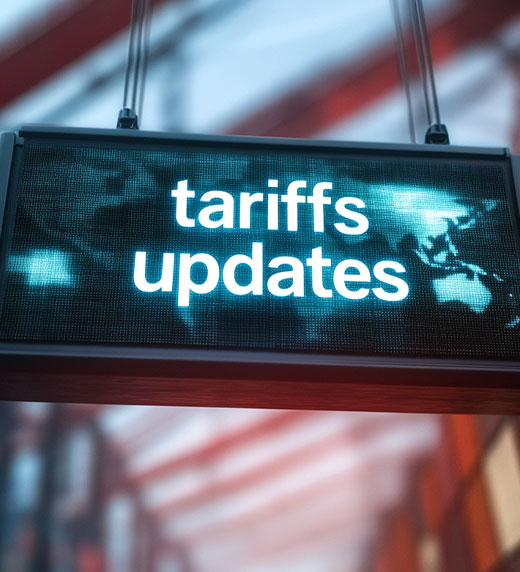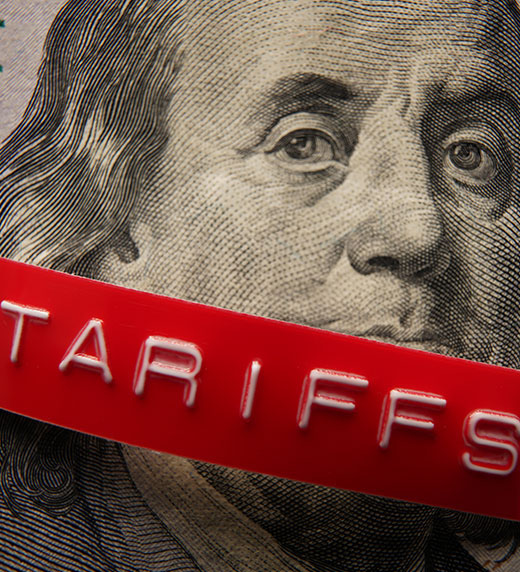
Following the Wayfair decision, states are continuing to push nexus boundaries and have begun applying Wayfair to business activity taxes. On February 7, 2019, the Ohio Appellate Court affirmed the lower court’s holding in Greenscapes Home and Garden Products, Inc. v. Testa, that an out-of-state corporation with no physical presence in Ohio is subject to Ohio’s Commercial Activity Tax (CAT) because application of the state's sourcing provisions satisfied one of the CAT's economic nexus thresholds (i.e., the $500,000 Ohio receipts factor).
Greenscapes, a Georgia retailer, sells the majority of its products to “big-box” retailers such as Walmart, Home Depot and Lowe’s. These retailers have distribution centers located in Ohio. Greenscapes does not have any locations in Ohio and does not employ any agents, representatives, or employees in Ohio.
When an order is placed, Greenscapes is provided with a delivery address. It prepares a bill of lading but is not responsible for shipping. The retailer arranges for a carrier to pick up the product at Greenscapes’ facility. Once loaded into the carrier’s truck, the product becomes the property of the retailer. After the product leaves the facility, Greenscapes cannot track the final destination of the product.
The Ohio Board of Tax Appeals (BTA) held that a retailer’s sales to their customers, where title passed at the origination point outside of Ohio, shipped via common carrier to the customer’s distribution center in Ohio, are subject to CAT.
The BTA concluded that these sales create substantial nexus with Ohio, and are subject to tax by (1) sourcing gross receipts to Ohio because the tangible personal property involved was ultimately received in this state, and (2) gross receipts sourced to Ohio exceeded Ohio’s bright-line factor presence standard of $500,000.
In this case, the BTA considered whether Greenscapes’ sales to the retailers with distribution centers in Ohio should be sourced to Ohio and rise to the level of substantial nexus under the Commerce Clause and demonstrate purposeful direction under the Due Process Clause.
Greenscapes is a Georgia corporation that solicits orders and sells products to retailers headquartered in Georgia, North Carolina and Arkansas. The orders are received in Georgia and billed to the retailer’s headquarters. The title to the goods passes in Georgia.
Greenscapes argued that the facts of this case are similar to the facts in McLeod v. J.E. Dilworth Co., 322 U.S. 327 (1944), where the U.S. Supreme Court held that a Tennessee corporation with no business location in Arkansas and no connections with Arkansas other than pure solicitation, was not subject to Arkansas sales tax. Greenscapes argued the transactions underlying the gross receipts at issue occur entirely outside the state of Ohio, therefore the corporation should have no Ohio sales.
BTA concluded that Greenscapes’ argument ignores that its retail customers have a presence in Ohio and that they purchased goods for delivery to their Ohio distribution centers. Greenscapes knew that its products were destined for Ohio at the time the orders were placed. R.C. 5751.033(E) provides that the situs of the gross receipts from the sale of tangible personal property is the place at which such property is ultimately received after all transportation has been completed. In this case, the BTA concluded that the evidence established that place is Ohio.
Greenscapes argued that a seller whose only contact with the taxing state is by common carrier lacks the required substantial nexus and cannot be taxed by the state. At most, the corporation’s only contact with the state of Ohio is through a common carrier hired and paid for by the retailers to transport purchased tangible personal property received in Georgia to a distribution center in Ohio. Greenscapes asserted that this was not sufficient contact to create a substantial nexus between the company and the state of Ohio.
However, the BTA looked to the U.S. Supreme Court opinion in Wayfair, 138 S.Ct. at 2092:
In Wayfair, the Supreme Court of the United States did not question South Dakota’s authority to tax the transaction because it involved the sale of tangible personal property for delivery into the state … It has long been settled that the sale of goods or services has a sufficient nexus to the State in which the sale is consummated to be treated as a local transaction taxable by that State.
Put simply, because the BTA concluded that the sales should be sourced to their ultimate destination, the retailers’ Ohio distribution centers, these sales should be considered when determining if substantial nexus exists.
Under R.C. 5751.01(H), a person has a “substantial nexus with this state” when the person (1) owns or uses a part or all of its capital in Ohio, (2) holds a certificate of compliance to do business in Ohio, (3) has a bright-line presence, or (4) otherwise has a nexus so that the person can be required to remit tax under the U.S. Constitution. Per R.C. 5751.01(I). “Bright-line presence” is established when a person (1) has property with an aggregate value of $50,000 in Ohio; (2) has payroll in Ohio of at least $50,000; (3) has taxable gross receipts of at least $500,000; (4) has at least 25 percent of its total property, total payroll, or taxable gross receipts in Ohio; or (5) is domiciled in Ohio.
The BTA noted that Ohio’s bright-line factor presence nexus standard is similar in concept to South Dakota’s bright-line presence test applied in Wayfair, and was previously upheld to comply with the substantial-nexus requirement of the Complete Auto test. Crutchfield, 151 Ohio St.3d 278. Therefore, Greenscapes’ sales (after sourcing their ultimate destination as discussed above) exceeded $500,000, creating substantial nexus in Ohio, subjecting Greenscapes to the Ohio CAT.
The BTA heavily cited and aligned their decision with the fairly recent U.S. Supreme Court decision regarding nexus for sales tax in Wayfair. This is a significant indication of Ohio’s interpretation and application of what was widely considered to be a sales tax case to other types of taxes. It remains to be seen if other states will take a similar approach and apply the logic of Wayfair with a broad brush to taxes other than sales tax.
It is worth noting that the court opined on a few instances of procedural errors, namely that the constitutional challenges were not raised early enough in the appeals process, and therefore would not be considered. To preserve options, it is important to consider the procedural requirements before any communications with the state.
The most concerning part of this decision is that Greenscapes had neither physical presence nor sales in Ohio. In finding that the corporation triggered Ohio’s economic nexus threshold of $500,000 New Jersey receipts, the court looked past the state in which Greenscapes delivered the goods to their customer and attributed an Ohio situs because (post-sale) the goods were ultimately shipped from the customer’s distribution center outside of Ohio to its stores in Ohio.
The application of Wayfair nexus coupled with a novel look through sales situs concept is an extremely slippery slope. Specifically, this decision essentially holds that if a company ships goods to a customer’s distribution center outside of Ohio and that customer subsequently ships those same goods to its stores in Ohio, the unrelated company could trigger Ohio’s economic nexus threshold and find themselves subject to the Ohio CAT tax.
The Ohio court’s application of Wayfair’s nexus coupled with this novel look through concept certainly muddies the already murky state tax nexus waters; however, the upshot to this is that muddy waters raise many interesting questions and potential planning opportunities, such as:
For example: Can a manufacturer that sells 100% of its products to a global customer’s distribution center in State X now take the position that the sales situs for apportionment purposes is no longer State X, but rather the state where its customer subsequently ships them?
We’ll keep you posted on further developments. If you have questions about how your business could be affected by states’ interpretations of the Wayfair nexus, contact Alex Thacher.


